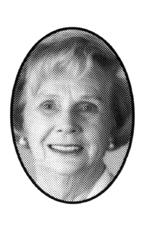Mr. Speaker, I have been very fortunate to work closely with several Nepean residents who, as disabled persons, face real barriers in their everyday lives.
I have always been especially concerned with the challenges faced by people with disabilities and I had the privilege to work on their behalf when I chaired the Standing Committee on Human Rights and Persons with Disabilities.
I am very pleased to see that the budget has allocated $230 million for Canadians with disabilities, including more eligible expenses for medical expense tax credits, duty free entry into Canada for goods designated for persons with disabilities, the elimination of a limit on attending care expenses for disabled workers and the opportunities fund which provides $30 million a
year in partnership with service organizations to help disabled workers.
The two key thrusts of the task force on disabilities are increasing tax recognition on the cost of disability and reducing barriers to employment. I am pleased to see these as well in the budget.
Through these initiatives persons with disabilities who want to work can do so and, as such, can become financially-

